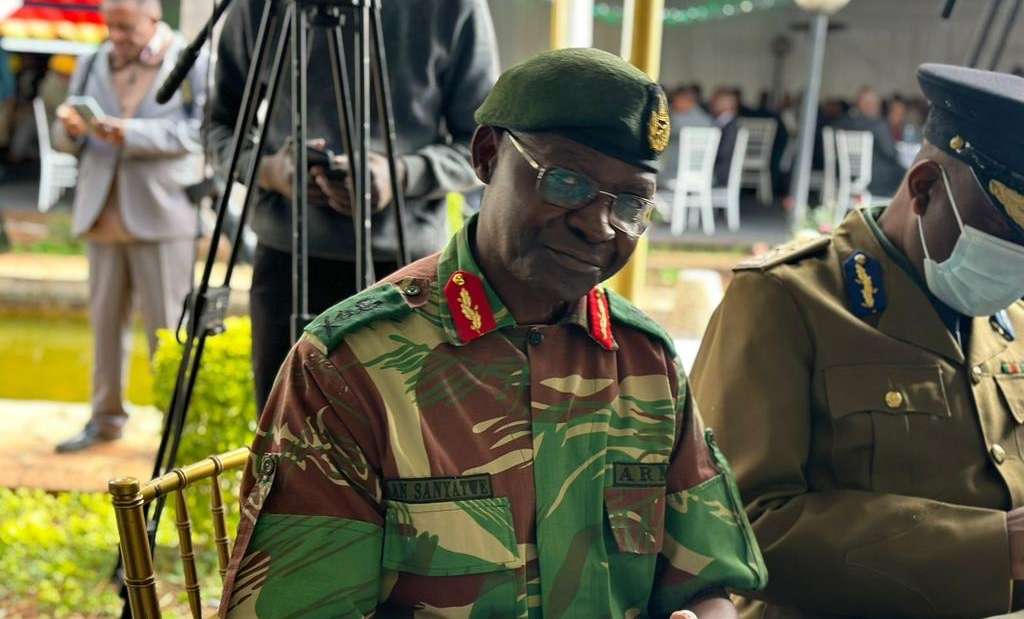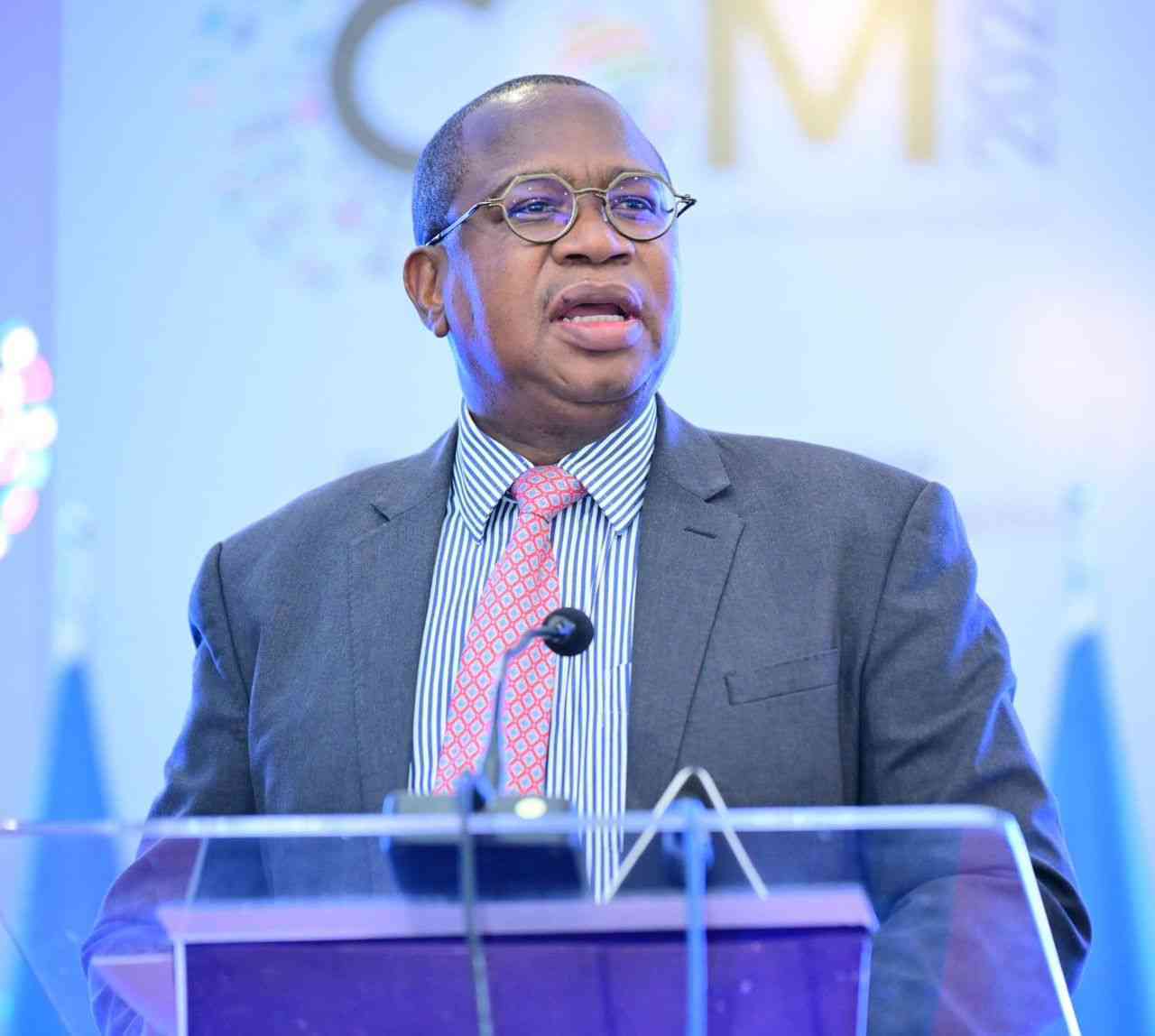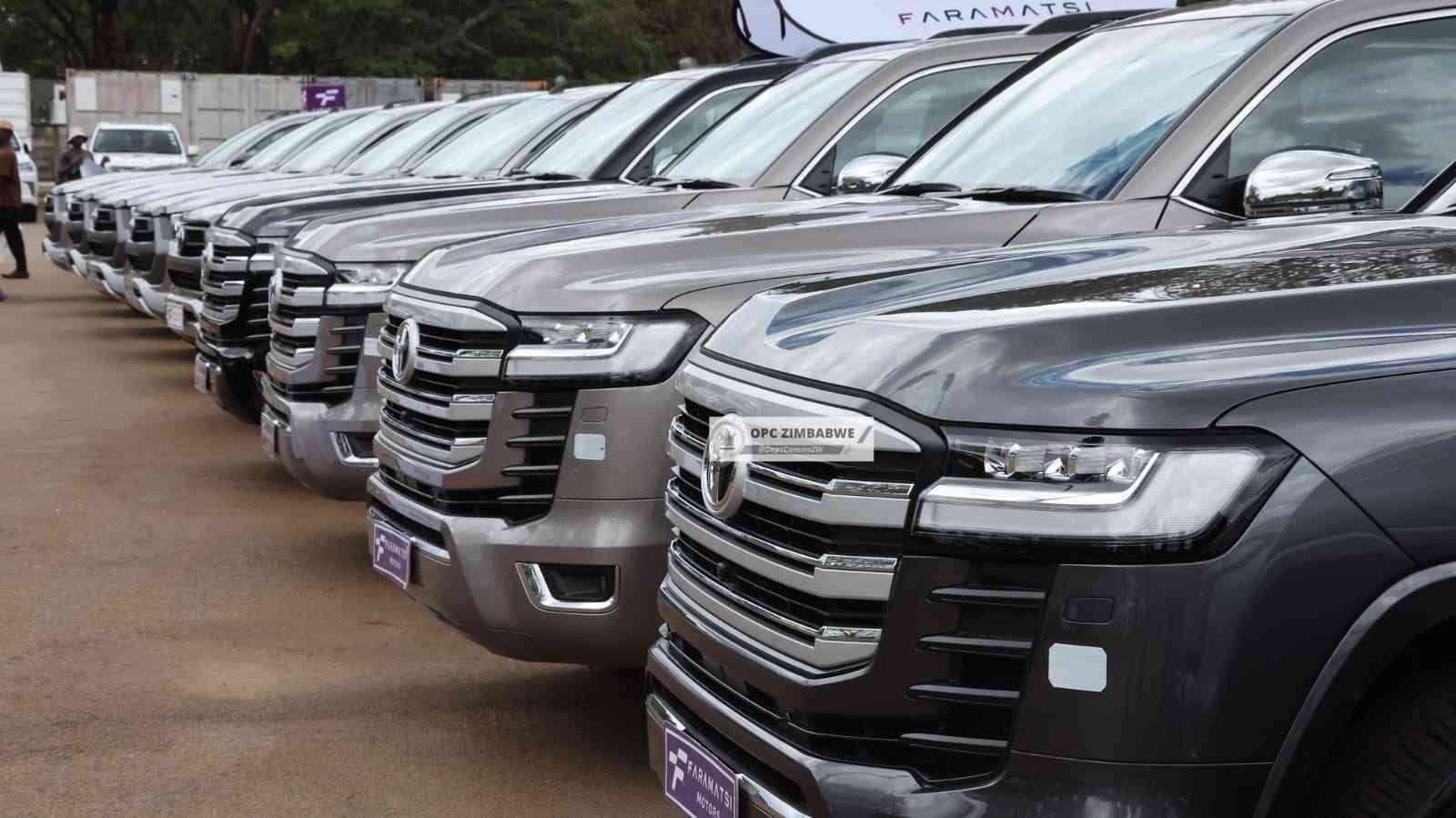
Since June 30, 2024, a video of Zimbabwe National Army (ZNA) Commander, Lieutenant General Anselem Nhamo Sanyatwe, has been widely circulated across marketplaces, street corners, commuter ranks, and social media platforms.
In this video, recorded at a Zanu PF party gathering in Nyanga North in Manicaland province, where his wife serves as Member of Parliament, Sanyatwe vowed to aggressively quash opposition forces and ensure the perpetual rule of the Zanu PF party “till donkeys grow horns.”
He declared: Are we together…? so Zanu (PF)will rule forever… whether you like it or not. I am saying this as commander of the army. We will use what is called command voting.
“Yes. Are we together…? Yes… As for the headmen the owners of the party we will sort that out. Are we together, are we together?
“Forward with Zanu [PF] Forward with Zanu [PF) Forward with ED Mnangagwa. Down with enemies.
“So, the chief PC (political commissar) of the Army is me. Forward with Zanu (PF). Down with the enemies.”
These declarations by one of the highest-ranking members of the military elite have sparked significant concern among citizens and democracy defenders, raising critical questions about the future of democracy and the viability of competitive opposition politics in Zimbabwe.
Such statements are a key feature in Zimbabwe’s historical politics of transition, dating back to the 1975 Mgagao Declaration where the command structure of the Zimbabwe African Liberation Army (Zanla) torpedoed the late president Robert Mugabe to the leadership of Zanu outside congress.
- Zimbabwe’s politics: Military the big elephant in the room
- Military will determine Mnangagwa succession in Zanu PF, says report
- Former army captain fights for reinstatement
- Mnangagwa in shock Sanyatwe appointment
Keep Reading
The utterances expose the mindset, interests, and political agenda-setting of the military elite in the country’s political transitions.
It is, therefore, important to begin conversations on these power dynamics to understand the political transitions ahead in the context of attempts by allies of President Emmerson Mnangagwa to extent his term in office to 2030.
In this Zim-agora, we focus on the role of the military elite in the politics of transition in Zimbabwe—a deeply entrenched ethic and political culture in the nation’s public and political affairs.
By “military elite,” as conceived in this paper, we refer to the top leadership of the Zimbabwe Defence Forces, both serving and retired, including those who sit and decide the welfare and fate of the republic in the Joint Operations Command (Joc), Zanu PF politburo and other key regime security platforms.
In Zimbabwe, the politics of transition revolve around two key arenas of power contestation.
The first and most important is the ruling Zanu PF succession and power transition contestation.
The second is the electoral contestation for the top post in the land, that of the president.
The first is the most important because it is the decisive factor used to access and define the second contestation.
Due to Zanu PF’s ubiquitous patronage networks strategically webbed across key decision-making arenas in state institutions—the legislature, the judiciary, the bureaucracy, the electoral management bodies, and the coercive state apparatus—he who controls Zanu PF controls levers of power that are so powerful and can neutralize the electoral threat of any political party.
Any president coming from outside Zanu PF will find it very difficult to govern due to these deep-seated networks.
The military involvement in politics has always been targeted at controlling Zanu PF, as it was strategically fashioned by the military elite before independence into a systemic web of patronage links of loyalists ready to capture the state and rule through those networks.
The military elites know very well that without these Zanu PF patronage networks, they cannot control the state.
This makes the struggle to control Zanu PF leadership the most critical one in Zimbabwean transition politics.
The military needs Zanu PF to remain in control of the state. Whereas once in control, Zanu PF, so captured, needs its networks within the army and other state institutions to fight possible external threats to its continued stay in power, whether coming from dissenting voices, the electoral arena, civic space, or democratic spaces.
The topic on the role of the military in the politics of transition in Zimbabwe therefore stands as one of the most pressing issues in Zimbabwe’s public discourse for two pivotal reasons.
Firstly, the military has been a decisive factor in Zimbabwe’s political transitions.
This influence has been particularly emphatic and glaring in the power transitions within the ruling Zanu PF party, from the pre-independence period to the present day.
Therefore, the question of militarisation in public affairs needs to be dissected to create entry points for citizens to have a voice in the governance of their affairs.
As the parents, providers, and financiers of the military elite, citizens must begin conversations on how best to shape our governance framework to rebuild eroded legitimacy and citizen trust.
Trust is a prerequisite for any political system to thrive, and it cannot be marshalled by force.
The current Mnangagwa administration’s woes emanate from this trust deficiency.
The social contract needs to be reconstituted. Despite their efforts, they are failing dismally, as will be revealed and dissected in detail in the next issue of the Zim-agora.
Secondly, the military elites wield disproportionate control over strategic coercive apparatus, power, and economic influence.
Their role in the transition is crucial, and any strategies that sideline them are doomed to fail.
As alluded to last week, it is essential to ensure that the military is not merely a bystander but actively involved in all transitional processes.
As we navigate these complex dynamics, it is vital to engage in conversations that illuminate the path forward for Zimbabwe’s democracy and governance.
Thus, we pose the critical question: Who is the elephant in the room?
The warrior tradition, the military, and/or the party?
By addressing this “elephant in the room,” we can begin to unravel the complexities of Zimbabwe’s political transitions and the role of the military elite.
Understanding these dynamics is essential for fostering a more inclusive and democratic governance framework, where citizen trust is rebuilt, and the social contract is reconstituted.
Only through such critical engagement can we hope to chart a path towards a more stable and democratic Zimbabwe.
The military, by its very nature, stands as a unique institution within the state, distinguished by four key attributes that grant it superiority over civilian institutions.
First, as an instrument of war, the military holds exclusive control over weaponry and the use of force.
Second, the military is highly organized and disciplined, characterised by strict obedience and a clear chain of command.
Third, military personnel are ingrained with values that prepare them to fight, kill, or die for their country.
Fourth, the military often views itself as above politics, seeing itself as the ultimate guarantor of state security and the repository of national interest.
Given its capacity to exercise substantial force, the military is arguably the most important state institution, serving as the definitive guarantor of sovereignty and liberty in the face of external threats.
Military leaders and groups are among the most powerful and revered figures in many countries.
The involvement of the military in politics can be categorized into three distinct roles: usurpers, legitimaters, and redemptors.
Usurpers involve the military unconstitutionally seizing power from civilian governments through coups, as seen in Mali in 2012.
Legitimaters, of particular relevance to Zimbabwe, include former guerillas who have transitioned into civilian roles and established the military as an organ of power akin to the executive and judiciary.
These armies often remain loyal to a single political party, reflecting their roots in the struggle for independence.
Redemptors involve the military stepping in to “redeem” the state from perceived failures of civilian governance.
These roles have played out very often in Zimbabwe.










